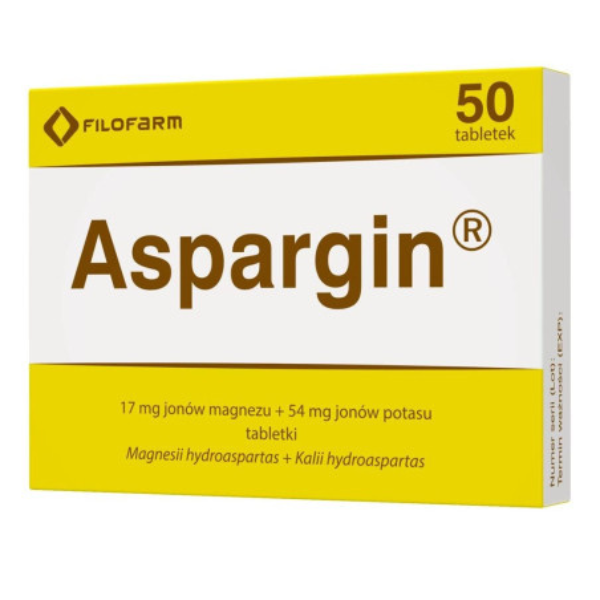Aspargin is a mineral supplement containing magnesium (17 mg) and potassium (54 mg) in the form of aspartates. It is designed to support heart health, muscle function, and electrolyte balance, especially during periods of fatigue, stress, or increased physical effort.
It may be recommended in cases of:
Magnesium and potassium deficiency
Muscle cramps or weakness
Cardiac arrhythmias (under medical supervision)
Recovery after illness or dehydration
Active ingredients:
Magnesium aspartate
Potassium aspartate
Pack size: 50 tablets
Brand: Filofarm
Usage: As directed by a doctor or according to package instructions. Not recommended for people with kidney disorders without medical advice.




